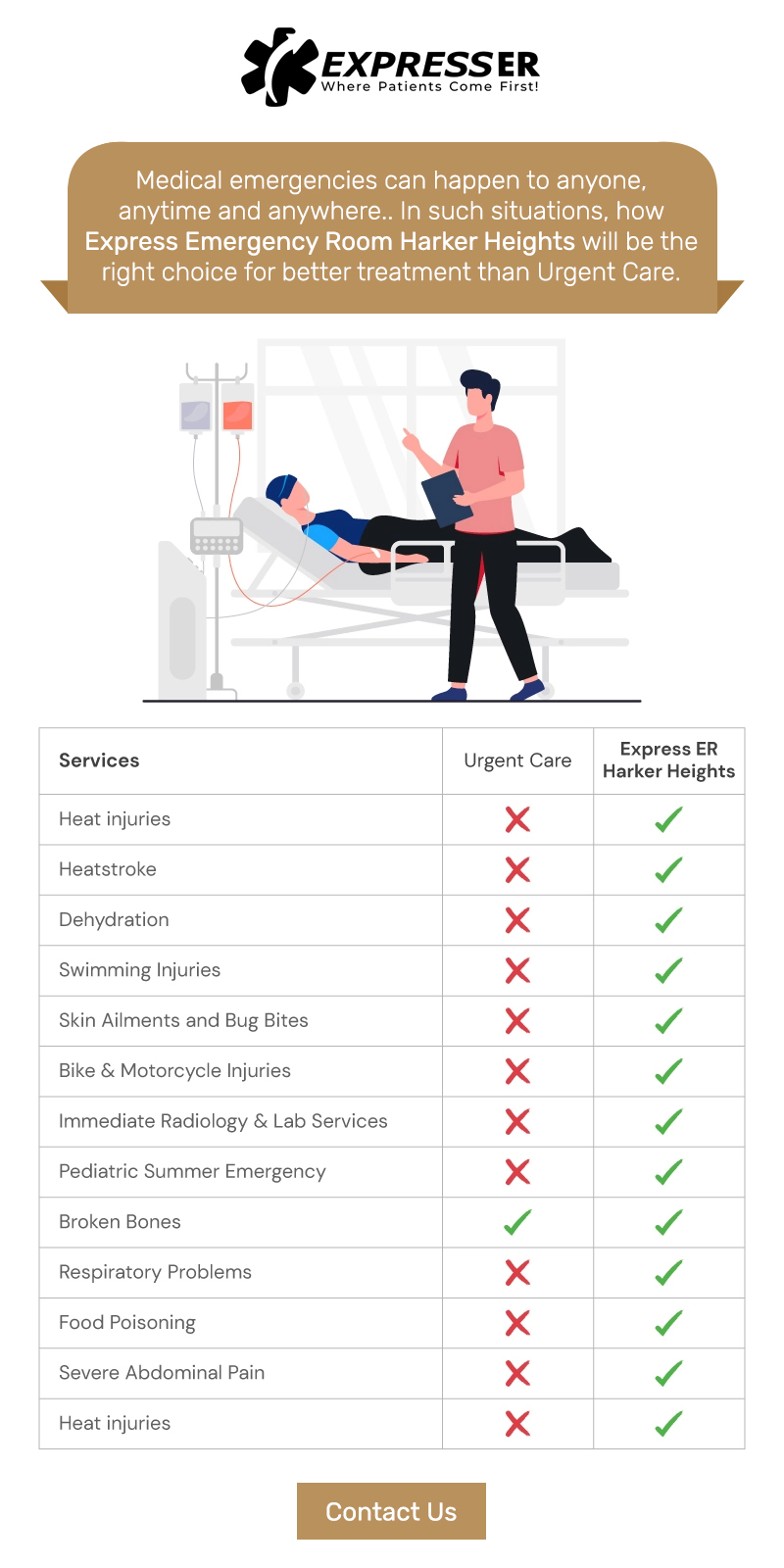Do you understand when your flu signs need a trip to the ER? Unfortunately, it’s challenging to determine and confirm the state of most medical professionals because they observe many patients developing severe complications and passing off because of their age.The flu is generally not an emergency, especially in the younger and healthier population. However, patients over 65, pregnant women, and people battling chronic conditions or compromised immune systems find themselves at higher risk of flu symptoms.
People in the high-risk categories experiencing severe flu-like symptoms like fever, chills, body aches, and other problems shouldn’t hesitate to visit the emergency room Harker Heights if no alternatives are available. Receiving treatment in the early stages can help such patients receive treatment against complications like bacterial pneumonia, superinfections, and fatalities.
Healthy people who smoke or vape are at a higher risk of contracting complications from the flu and must consult their physician if they suffer from flu symptoms.
When to Visit the Doctor for Flu Symptoms?
Antiviral medications might be an option if you have the flu and visit your doctor within two days of developing the condition. Unfortunately, studies reveal that antiviral drugs merely shorten the duration of the sickness by a day or less, and symptoms can return with severe side effects.
Instead of visiting a doctor or immediate care center to receive prescriptions, medical professionals advise healthy people to take over-the-counter medicines to manage the symptoms, remain in bed, and drink plenty of fluids without exerting themselves.
When to Visit the ER with Flu Symptoms?
Adults with the symptoms mentioned below should consider a visit to the ER for urgent treatment, especially if they experience difficulties in breathing or breathlessness, pain and pressure in the chest and abdomen, unexpected diseases and frequent dizzy spells, confusion, severe and persistent vomiting, and flu-like symptoms subside but return.
Identifying flu in children and infants is challenging, especially when they are not walking or talking. In such cases, you must watch out for these emergency symptoms. They are bluish skin or lips, extreme irritability, fast and troubled breathing, the lack of tears when trying and fewer wet diapers than average, fever with rash, not eating or drinking, and flu-like symptoms subsiding before returning with fever and cough.
If you don’t have the symptoms listed above and are not in a high-risk group, you may still find it beneficial to visit a doctor or urgent care to prevent the symptoms from aggravating.
Are There Preventive Measures against the Flu?
In reality, the best defense against the flu is prevention. If you are proactive and use the strategies described below, you have a preventive measure in hand that helps you avoid visits to emergency rooms or your doctor.
- Receive Flu Season Vaccinations: the best preventive measure is to receive the flu shots at the start of the flu season. You can receive the shots at your primary healthcare provider or an urgent care facility near you.
- Remain Vigilant with Handwashing: Wash your hands with soap and water, scrubbing all sides of your hands and beneath the fingernails. The washing regimen should last 20 to 30 seconds, just about as long as it takes to sing a rhyme. If you don’t have soap or water nearby, use a hand sanitizer until you can access a sink.
- Remain at Home: if you do not feel well, avoid people for at least 24 hours even after your fever subsides, and consume plenty of fluids. The flu remains contagious for approximately a week after the symptoms begin. You can also consider wearing a respiratory mask on airplanes, doctor’s offices, and public places to ensure you don’t pick up another infection from others.
If you think you have the flu and your symptoms are not improving, but you are not severely ill or in the high-risk group, you can contact your primary healthcare provider for assistance or receive immediate care at an urgent care facility. Unfortunately, if your symptoms worsen and resemble the kind described earlier, and you are in the high-risk group, you find it better to visit the Harker Heights emergency room to get your condition evaluated and treated from a facility with comprehensive infrastructure and the staff to treat you and your symptoms.
Express Emergency Room Harker Heights suggests adopting preventive measures against the flu for people in the high-risk category. However, they also provide treatments for flu and common cold symptoms at their facility in express Heights. Therefore consult this emergency room if you need help with flu symptoms.






